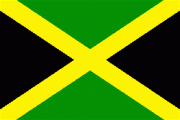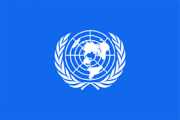Mr. Chairman,
I have the honor to address this Committee on Agenda item 28 on the Advancement of Women on behalf of the delegation of Jamaica. My delegation aligns itself with the statements made by Algeria on behalf of the Group of 77 and China, Chile on behalf of the Community of Latin America and the Caribbean (CELAC) and Guyana on behalf of CARICOM. I would like, however, to make an intervention on issues which Jamaica considers to be of particular importance and to briefly outline the Government of Jamaica’s main efforts in promoting the advancement of women.
I wish to extend my gratitude to the Secretariat for providing the relevant reports which will guide our discussion on the issues presented.
Mr. Chairman,
Seventeen (17) years has passed since the adoption of the Beijing Platform of Action. While there has been some tangible progress in global efforts aimed at providing women with greater access to education, healthcare, and greater protection from violence, a lot more remains to be done. The world development report 2012 on gender equality has identified several areas in which greater attention is to be given. Included in this, is the need to improve access to economic opportunities and earnings for women and to close the productivity gap between men and women.
It is noted that the global financial crisis, the food crisis, the adverse effects of climate change, and the scourge of war and civil strife in some regions of the world have undermined the efforts made by States in implementing their national policies on advancing the rights of women, and remains an imminent threat to the advancements made thus far. This is especially so in Small Island Developing States (SIDS), in particular, those which have been classified as upper middle income countries and who are at risk of losing funding geared towards the attainment of Millennium Development Goal 3. The consequences of such a classification have exacerbated the plight of women residing in the countries concerned; the majority whom, are from a poor working class background while being the chief income earners of their respective families. In light of this, I urge the International Community to guard against eroding the gains made in the global effort to empower women, by urgently addressing the iniquitous methods applied in the classification of States.
Mr. Chairman,
Jamaica remains concerned about the high level of exploitation of, and violence against women, especially with regard to the trafficking of women and young girls, seen by traffickers as commodities to be traded on the underground market. It is in this regard, that Jamaica, unwavering in its firm commitment to protect the most vulnerable in society, has developed a comprehensive legislative and administrative framework to rid itself of this gross inhumanity.
Mr. Chairman,
In spite of the many challenges and financial constraints, Jamaica continues to make significant progress in advancing the rights of women and in the promotion of gender equality. In this our 50th year of Independence, Jamaican women have exceeded every expectation and have occupied spaces in the highest echelons of society, including the first female Prime Minister. The fact that women represent 60% of those employed in the public sector and are the majority of those employed as professional, senior officials and technicians is indicative of the Government of Jamaica's commitment to its international obligation in ensuring that women are equally and adequately provided for.
Mr. Chairman,
Several leading positions within the public sector are held by women, prime examples of which are the positions of Chief Justice, Auditor General, and Director of Public Prosecutions. Our zeal in advancing the rights of women cuts across all sectors of the society. In education, girls at the primary and secondary level graduate approximately at the same level as boys and at the tertiary level women matriculate and graduate at higher rates than men. In health, the Government of Jamaica has tasked itself to reduce maternal mortality to achieve a rate of 36 deaths per 100,000 by 2015. So far, an approximation of 91% of pregnant women in Jamaica receive quality antenatal care at least once during pregnancy and approximately 97% of births are delivered by skilled professionals. In social security, the Government of Jamaica has implemented various measures to ensure that the most vulnerable women within the society are socially secure. The most notable measure is that of the PATH programme established in 2002. The PATH programme provides cash grants to the most vulnerable families in support of health and education for children, the elderly and persons with disabilities. In commerce, the establishment of the Women Business Owners Jamaica Limited (WBOJ) in 2003, has provided women business owners with the requisite training in business principles and practices; research, mentorship and networking in developing business enterprises and towards strengthening entrepreneurship skills.
In closing Mr. Chairman,
Let me assure you, that although a country limited in its financial resources and riddled with many social challenges, Jamaica remains resolute in the goal of eliminating gender disparity in all sectors of the society. I take this opportunity also to acknowledge the strength and fortitude of our women, who despite the many challenges, have remained resilient and has made an invaluable contribution to the development of our country.


